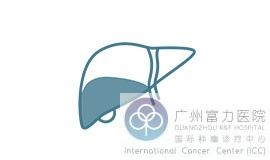Diagnosis of Colorectal Cancer
The diagnosis of colorectal cancer is like a delicate "detective operation" that requires the comprehensive use of multiple methods and layer-by-layer analysis to accurately identify the disease.

Physical examination: The first step in the physical examination is the digital rectal examination. During the operation, the doctor will slowly insert his index finger into the patient's anus. It seems simple, but it actually contains hidden secrets. It can detect 60% - 70% of rectal cancers. With the advantages of low cost and high effectiveness, it has made great contributions to the early screening of colorectal cancer.
Endoscopic examination: Endoscopic examination is a key step in obtaining "iron evidence of pathology". Different types of endoscopes have their own special powers. Anoscopes, sigmoidoscopes, and colonoscopes each perform their own functions and can be used precisely according to the inspection site. With the support of electronic endoscopes, chromoendoscopy, and ultrasonic endoscope technology, not only can the lesions be directly identified, but pathological results can also be obtained through biopsy, laying a solid foundation for the formulation of subsequent treatment plans.
Laboratory tests: Laboratory tests should not be underestimated. Fecal occult blood test is the "main force" of colorectal cancer screening. It can detect abnormal intestinal bleeding from subtle details, thus opening the prelude to early diagnosis. Carcinoembryonic antigen (CEA) and CA19-9 are like "identity tags" of tumors and are tumor markers that must be tested for colorectal cancer patients. In addition, the stability of the immune group and the depth of genetic monitoring provide key indicators for the key indicators of mismatch repair proteins and microanalysis methods.
Imaging examination: Imaging examination is the "jigsaw master" that constructs the complete picture of colorectal cancer. Barium double contrast radiography (barium meal X-ray) has become a common method for diagnosing colorectal diseases due to its economical and practical characteristics, outlining the intestinal contour; CT "shows its prowess" before surgery, accurately determining the stage of colorectal cancer and clearly presenting the details of the invasion range and lymph node metastasis; MRI focuses on the invasion of lesions and surrounding tissues, and strongly combines anti-cancer and CT; providing all-round intelligence support.
For more cancer knowledge, please click on the online doctor for consultation
Use precise technology to create more possibilities for life.
The Cancer Center of Guangzhou R&F Hospital has opened an era of "chemotherapy-free survival" for cancer patients, winning a lasting victory for life. If you or your family are facing difficulties in cancer treatment, please contact the Guangzhou R&F Hospital Cancer Center. We offer multilingual medical history consultations, contact us today to get an assessment of your treatment eligibility.
Contact Us:
email: rfcancercenter@gmail.com |
WhatsApp: +86 18565157271











































